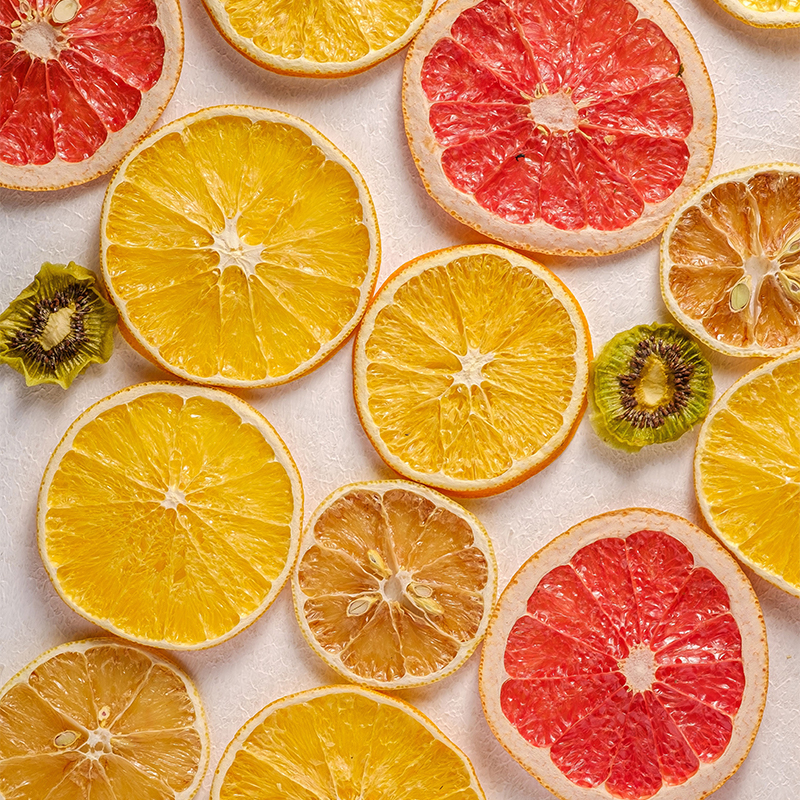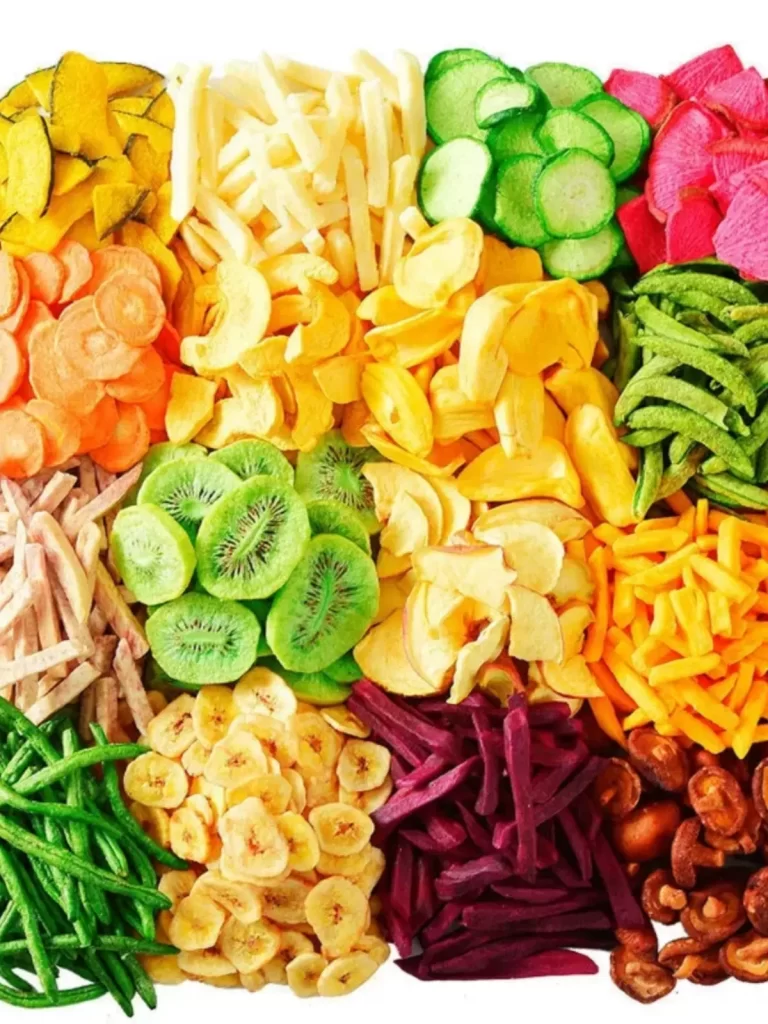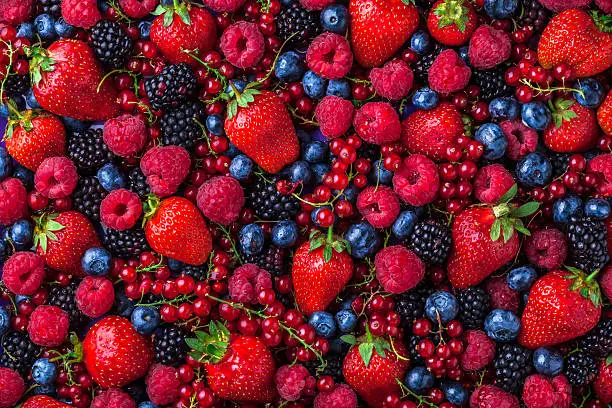Understanding Freeze-Dried Fruits
In today’s fast-paced society, people are increasingly focusing on dietary health, and the emergence of freeze-dried foods has offered us more options. Among the most popular freeze-dried foods, what advantages do freeze-dried fruits have? Are they healthy? Why are they so expensive? These are the concerns people have. Today, let’s explore the answers to these questions together.
Freeze-dried fruits are made by sublimating the water content in fruits directly into vapor under low-temperature vacuum conditions, thus preserving the fruits’ original shape and color, and maximizing the retention of nutrients.

Health and Nutrition
When it comes to freeze-dried fruits, the foremost concern is: Are freeze-dried fruits healthy? The answer is affirmative. During the freeze-drying process, the water content in fruits sublimates directly into vapor, while the other substances in the fruits are perfectly preserved. Nutrition and health are the biggest advantages of freeze-dried fruits. More importantly, since the water content is removed, freeze-dried fruits can be preserved for a very long time without any additives and preservatives, eliminating worries about fruits getting moldy or spoiled. For those pursuing health, this is the best choice.
So, what are the healthiest, most nutritious fruits?
- Rich in Potassium: Bananas are rich in potassium, beneficial for heart health and blood pressure regulation, and freeze-drying preserves the potassium content well.
- Rich in Fiber: Apples and pears are rich in fiber, aiding digestion and benefiting the body.
- Rich in Vitamins: Strawberries and blueberries are rich in vitamins, fiber, and antioxidants, effectively supplementing body nutrition.
- Oranges and lemons are rich in Vitamin C, which can enhance the body’s immunity. The freeze-drying process preserves these nutrients well. Additionally, some fruits are recommended for easy freeze-drying, offering simple procedures and delicious flavors: apples, bananas, mangoes, peaches, strawberries, and pineapples.

Can We DIY Freeze-Dried Fruits at Home?
The answer is yes. For freeze-dried fruit enthusiasts, DIYing freeze-dried fruits at home is a joyous activity. To do this, you’ll need a professional domestic freeze dryer. With the popularization of home freeze dryers, making freeze-dried fruits at home has become simple and convenient. For more information on home freeze dryers, you can read this article: Freeze Dry Machine For Home Use: Discover How To Preserve Food Effortlessly
Suggestions for DIY Freeze-Dried Fruits
Choosing the right fruit is crucial for the taste of the final product. Common fruits like apples, bananas, strawberries, and mangoes all taste great after freeze-drying. Moreover, it’s important to select ripe fruits. For example, strawberries that are not yet ripe will concentrate in acidity due to water removal during freeze-drying, making the final product more sour.
- Preparing the Fruit: Wash the fruit thoroughly before freeze-drying. Slice or chop the fruit evenly to ensure consistency in the final product (for example, large fruits like pineapples are difficult to freeze-dry whole; slicing or chopping them allows the freeze-drying process to be completed in about ten hours). Place the prepared fruit into a home freeze dryer, select the appropriate menu, and start freeze-drying. This process preserves the fruit’s nutritional content well. Because the water content is removed but the sugar content is not reduced, freeze-dried fruits have a higher sugar content compared to fresh fruits.

Why are freeze-dried fruits expensive?
Why are freeze-dried fruits so expensive? The freeze-drying process requires a low-temperature vacuum environment, involving professional freeze-drying equipment. This process is more complex and time-consuming than traditional drying methods. It also consumes a significant amount of energy, adding to the production cost. Moreover, freeze-dried fruits, with their health and nutritional benefits, are marketed as high-end health foods targeting customers with certain purchasing power.
How long will freeze-dried fruit last?
Due to the removal of water content during production, freeze-dried fruits have a much longer shelf life than traditional preservation methods. Under ideal storage conditions, they can last for over 25 years with minimal nutrient loss. Even fruits like strawberries, prone to spoilage, will not mold or spoil for many years if stored in sealed containers.
As a new type of health food, freeze-dried fruits are becoming increasingly popular. Besides freeze-dried fruits, what other freeze-dried foods are there? Let’s continue to explore these topics in future articles.
The Charm Of Freeze-Dried Candy: Unlocking The Door To A New World
Freeze-Dried Cat Food: A New Choice For Pet Food
Freeze-Dried Dog Food: A New Choice For Nutritious And Healthy Pet Food
Freeze-Dried Breast Milk: The New Use For Home Freeze Dryers






